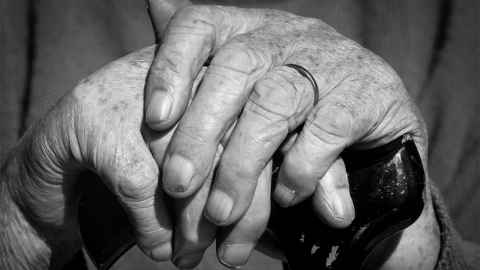Busy year ahead for first aged care commissioner
17 February 2022
Opinion: Claire Dale takes a look at what New Zealand's first aged commissioner will be up against - finding she'll have more than enough on her hands.

In 2017, Labour pledged to introduce an aged care commissioner after concerns were raised at public meetings on issues including substandard housing provision, falling standards of residential and community-based care, inadequate access to surgery and elder abuse. Independent oversight of the aged care sector was required.
A commissioner with statutory powers and the ability to investigate complaints about aged residential care, home care, needs assessment and palliative care and make recommendations to Parliament could provide this. The position would be part of the Health and Disability Commission and would include investigating systemic issues in aged care and advocating for improvements.
In 2022, after $8 million over four years was pledged in Budget 2021, we can finally welcome Dr Carolyn Cooper as New Zealand’s first aged care commissioner.
Terms of reference for the role are:
“… to provide a higher profile and focal point for monitoring and addressing quality and safety issues in the aged care sector. It will also provide greater influence and leadership to the aged care sector in prioritising and driving systemic quality improvement…. one individual with strategic oversight providing the leadership to oversee, champion and monitor the needed improvements.”
Minister for Seniors and Associate Minister of Health Dr Ayesha Verrall has said Cooper will be leading much needed systematic change in the sector.
“There are many positive stories from older New Zealanders who use aged care services, however there are times when the care falls short. The current system to ensure quality and safety in the sector is fragmented, and it can be complicated navigating services to get help. This disconnect has made it difficult for those who want to make a complaint about aged care to speak up, be heard, and receive a timely response.
“The aged care commissioner will be able to make sure the care being provided is consistent and culturally appropriate for all older New Zealanders, including Māori and Pacific people,” Verrall has been reported as saying.
Cooper resigned as the managing director of Bupa Villages & Aged Care NZ to take up the new watchdog role for a five-year term starting March 2022. She is planning on beginning the role by consulting older people, although when still at Bupa she was reported as saying the sector's biggest challenges were a lack of government funding and the subsequent labour shortage.
"I have a very broad health experience background. I understand the way DHBs work, I understand how other parts of the sector work. And I am there for older people, that is my main thing - to make sure of their rights, protection and access to healthcare,” she has said.
Australia recently set up an independent Aged Care Quality and Safety Commission, following findings of widespread poor rest home care. In New Zealand, groups including Grey Power and unions representing nurses and caregivers, have called for such a position, arguing that current oversight of a sector looking after 36,000 of the most vulnerable New Zealanders is ineffective and split between different groups.
Around 77 percent of aged residential care (ARC) facilities are in the commercial for-profit sector, providing 79 percent of beds; 22 percent of facilities are in the charitable sector (for example church and welfare organisations) and provide 21 percent of beds. The remaining balance of around 1 percent of beds are in District Health Board-owned ARC facilities.
However, that figure of 36,000 is only counting those people in aged residential care. There are a further 75,000 older New Zealanders receiving home-based care. During 2013/2014, the DHBs spent approximately $217 million on more than 10 million hours of home support for those 75,000 older people. As with ARC, most in-home aged care providers are DHB-funded, for-profit businesses.
Verrall has said there would be mechanisms to deal with potential conflicts of interest, although neither Verrall nor Cooper would say what they thought those issues were.
One possible cause of a conflict of interest is overlapping jurisdictions. The retirement commissioner is required to monitor the effects of the retirement villages' legal framework, including the act, associated regulations, and the code of practice. The aged care commissioner is tasked with ensuring that aged residential care provision is adequate, safe, consistent and culturally appropriate for all older New Zealanders. But most ARC beds are located in retirement villages. In addition, village residents can access DHB-funded home-based care services.
Another potential conflict of interest is between aged care workers, the for-profit companies employing them, remuneration, and the DHBs funding aged care services. As the Productivity Commission found:
“Workforce development and carer support are important concerns for services funders, to address issues including high turnover of staff, inadequate training, lack of staff support and supervision, worker dissatisfaction with pay and scheduling and the changing nature of support work.”
In addition to all the other issues in the sector, rest homes accounted for most Covid-19 deaths during earlier outbreaks of the pandemic. The aged care commissioner is in for a busy year.
Claire Dale is research fellow at the Retirement Policy and Research Centre in the Department of Economics in the Business School.
This article reflects the opinion of the author and not necessarily the views of the University of Auckland.
Used with permission from Newsroom Busy year ahead for NZ’s first aged care commissioner 17 February 2022
Media queries
Alison Sims | Media adviser
M: 021 249 0089
E: alison.sims@auckland.ac.nz